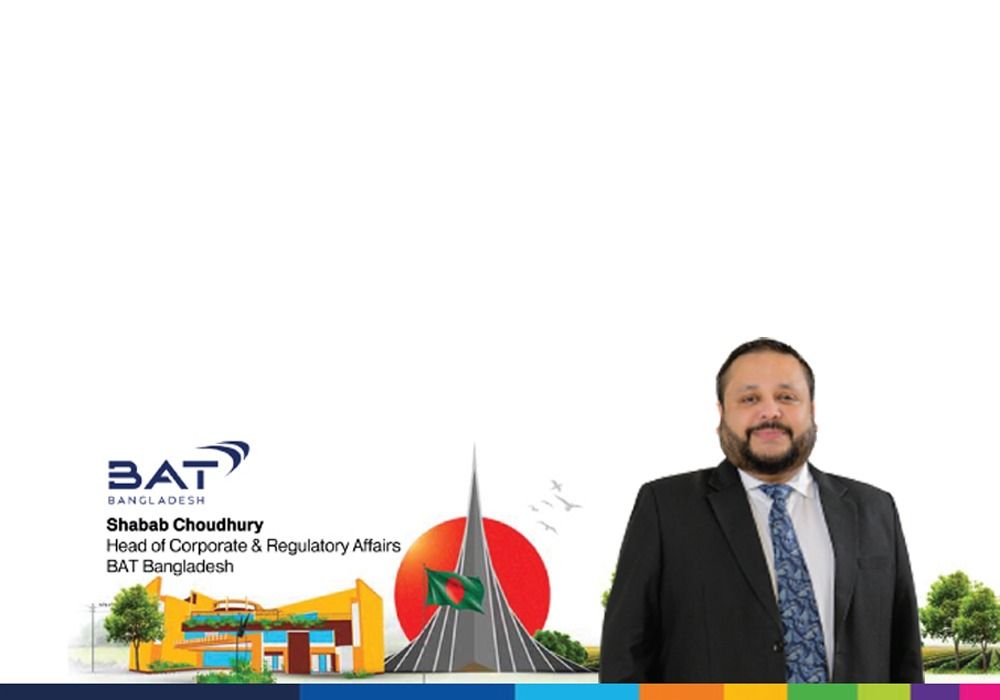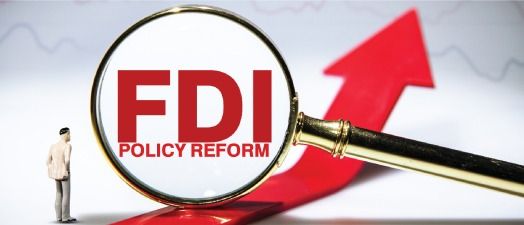- info@ficci.org.bd
- |
- +880248814801, +880248814802
- Contact Us
- |
- Become a Member
- |
- |
- |
- |
- |

Over the last two decades, Bangladesh has gradually become one of the fastest-growing economies in the world, with trade and investment playing a critical role in the transformation. In this journey, the country has made outstanding progress in attracting foreign direct investment (FDI), broadening its economic landscape, and expanding exports. In spite of that, sustaining such growth requires a predictable, stable, and investment-friendly policy environment. Addressing challenges that could disrupt trade and investment is just as crucial as ensuring policies that drive long-term growth. As Bangladesh enters a new phase of reforms and development, well-planned policy decisions will be key to its future success.
Trade and investment have played a vital role in shaping Bangladesh's economic landscape. The readymade garment (RMG) sector, which contributes approximately 81.6% of total exports, stands as a testament to the impact of foreign direct investment (FDI) and trade-friendly policies. Similarly, industries like manufacturing and information and communication technology (ICT) have experienced significant growth, driven by increased foreign investment and supportive trade policies. A prime example of Bangladesh's investment potential is the country's largest-ever FDI inflow-Japan Tobacco International's (JTI) acquisition of Dhaka Tobacco Industries for approximately $1.5 billion.

A strong investment climate is essential for fostering innovation, creating jobs, and attracting capital. Bangladesh's demographic dividend, with over 60% of its population in the working-age group, presents a unique advantage, ensuring a steady supply of skilled and semi-skilled labor. Combined with its strategic location and expanding consumer market, the country is an attractive destination for investors. The govern- ment's policy reforms-such as establishing special economic zones and improving the ease of doing business-have further bolstered investor confidence. Additionally, the ICT sector has seen remarkable advancements, reinforcing the country's ambition to become a technology-driven economy.
Bangladesh needs to focus on infrastructure development to maintain such momentum. Ensuring policy consistency and heightening the PPPs (public-private partnerships) will be vital in unlocking new opportunities.
While the country's trade and investment landscape seem favourable, policy unpredictability still remains a consequential challenge. Abrupt alterations in taxation and regulatory frameworks can create uncertainty for current and future investors. The absence of a long-term fiscal roadmap has led to situations where businesses, regardless of their contributions to the economy, face sudden disruptions. For example, recent abrupt policy changes have caused severe negative effects on investment confidence.
 The Oxford Economics report showcases that in FY 2022-23, the cigarette industry alone has contributed BDT 346.4 billion in tax revenues, accounting for 11.6 per cent of the country's total tax receipts, which is nearly ten times the global average of tobacco tax contributions. Despite such economic contributions, the recent sudden decision to increase the tax rate from 77 per cent to 83 per cent of the retail price in January 2024 was implemented without formal industry consultation, which raises concerns about policy predictability.
The Oxford Economics report showcases that in FY 2022-23, the cigarette industry alone has contributed BDT 346.4 billion in tax revenues, accounting for 11.6 per cent of the country's total tax receipts, which is nearly ten times the global average of tobacco tax contributions. Despite such economic contributions, the recent sudden decision to increase the tax rate from 77 per cent to 83 per cent of the retail price in January 2024 was implemented without formal industry consultation, which raises concerns about policy predictability.
 The sudden tax hike is expected to negatively affect the industry, leading to volume declines and lowering margins for legitimate businesses. The domino effect will be felt throughout the value chain, which will affect 4.4 million people, including 1.3 million retailers and labourers, and 150,000 farmers. In addition to the heightened SD (Supplementary Duty), the sector is also facing a corporate tax rate of 47.5 per cent, which is one of the highest in the world. Such kinds of policy unpredictability create an impression of instability, discouraging both local and foreign investors from making any long-term commitments.
The sudden tax hike is expected to negatively affect the industry, leading to volume declines and lowering margins for legitimate businesses. The domino effect will be felt throughout the value chain, which will affect 4.4 million people, including 1.3 million retailers and labourers, and 150,000 farmers. In addition to the heightened SD (Supplementary Duty), the sector is also facing a corporate tax rate of 47.5 per cent, which is one of the highest in the world. Such kinds of policy unpredictability create an impression of instability, discouraging both local and foreign investors from making any long-term commitments.
On top of it, a recent report by the Bangladesh Investment Development Authority (BIDA) identifies major gaps in structured investment promotion, regardless of the steady growth in key industries.The report shows that the FDI inflows have stayed stagnant, contributing to only 0.5 per cent of GDP (Gross Domestic Product) in recent years, which is far below the global average of 3 to 4 per cent. Furthermore, only 45 per cent of these investments qualify as direct FDI, with the remaining comprising intercompany loans or reinvest- ments. 1 The report pinpointed 19 priority sectors that drive economic growth and attract FDI, composed of traditional strengths like semi conductors, electric vehicle batteries, and renewable energy. We must applaud the recent efforts made by BIDA, which recently held the country's first investment roadshow in Japan. This 4-day long summit could be considered a cornerstone to ensure a sustained inflow of FDI.
However, to sustain Bangladesh's economic momentum and attain its long-term development goals, the country must give precedence to policy stability and investor-friendly reforms. The nation should concentrate on developing a long-term fiscal roadmap that will prevent sudden shocks throughout the economy. The government should improve stakeholder engagement by consulting with industry leaders, trade experts, and investors to develop balanced and well-informed decisions. Additionally, investing in infrastructure and human capital development will enhance productivity, attract high-value investments, and position Bangladesh as a competitive global investment hub.
Trade and investment play a crucial role in Bangladesh's economic transformation; however, maintaining progress requires a stable and predictable policy environment. While the nation has made significant strides over the years in attracting FDI and expanding trade, it is critical to address policy instabilities and establish stakeholder consultations. With a collaborative effort between the private sector and the government, the nation can continue its journey of becoming a global trade and investment hub, ensuring shared prosperity for all.





